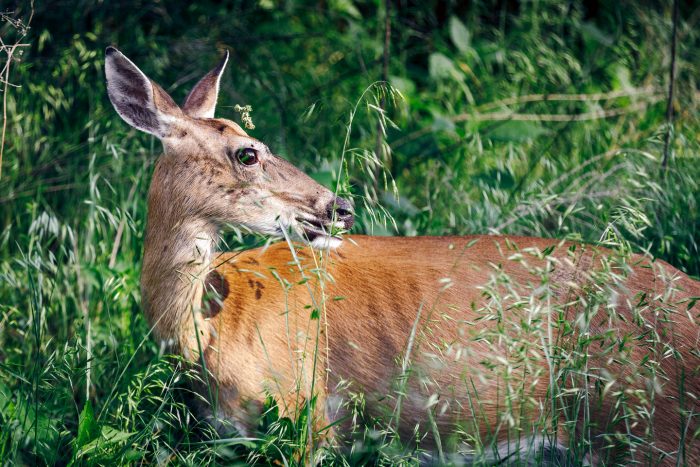7 Leave No Trace Principles To Help You Enjoy The Outdoors
Leave No Trace and help conserve West Virginia’s remarkable forests, parks and wildlife with these conservation tips.
When life feels cluttered or the digital demands of modern always-on living gets overwhelming, an escape in the outdoors can help you clear your head and liberate your mind.
That’s why West Virginia is such a magical place. You can stay connected and then unplug for a weekend and enjoy soul-refreshing landscapes and awe-inspiring views, lush forests and delicate wildflowers, rushing waterfalls and trickling streams.
It’s in these natural settings where we can reconnect with nature and feel like we’re in Almost Heaven.
Crowds, Trash and Pollution Threaten the Outdoors
When you’re hiking on your favorite trail or enjoying a beautiful sunset at an overlook, there’s nothing more frustrating than stumbling across or even over someone else’s trash.
Social media feeds aren’t the only things that get busy or full of junk. Because there is an increased interest in outdoor adventures, our beautiful woods, mountains, lakes and streams are at risk from overcrowding and other environmental factors that can have a negative impact. Simply put: If we don’t take care of our parks, forests and other natural areas, we stand to lose them.
The good news is that you can help protect nature. And it’s easy.
Leave No Trace
While state parks and forests are for our enjoyment, we need to remember to respect nature by observing Leave No Trace principles at parks and forests. Here are a few ways you can do that on your next visit to help minimize your impact on the land.
1. Plan Ahead and Prepare
You can plan a Leave No Trace trip by visiting in the off- or shoulder-seasons when traffic is less. But before you go, do some research to find out if there are any special regulations for the area you’ll visit. For example, if you plan to go trout fishing at Blackwater Falls State Park you’ll need to make note of catch and release areas, such as sections of the Blackwater River.
Don’t forget to prepare for extreme weather, hazards and emergencies by packing rain gear, extra clothes and first aid kits. Also, make sure you pack food in a way that minimizes or eliminates waste.
2. Travel and Camp on Durable Surfaces
When visiting a state park or forest, make sure you travel through nature without damaging or impacting the land around you. The best way to do this while hiking is by staying on marked and maintained trails and walking single file in the middle of the path. When camping, only camp at designated sites.
3. Dispose of Waste Properly
While camping, use shower facilities to wash yourself. Make sure you clean dishes at your campsite, away from streams or lakes, by using small amounts of biodegradable camp soap. Don’t dump dishwater in a stream or lake. Use designated toilet areas whenever possible. Otherwise, deposit and cover solid human waste in a 6-8-inch-deep hole at least 200 feet from water, campsites and trails.
Before leaving your campsite or any place on the trail you choose to rest, inspect the area to make sure you don’t leave behind anything. Don’t litter, clean up after yourself and pack in and pack out all of your belongings.
4. Leave What You Find
Take what you bring and leave what you find. Look but don’t touch. Rocks, plants, flowers, wildlife and other natural objects should be observed from a distance and left in their natural setting. Take a photograph if you want to remember something. Leaving nature as you find it also means you shouldn’t build cairns and other structures along a trail.
5. Minimize Campfire Impacts
Fire impacts an environment, so only light a fire in a designated campfire ring. Pay attention to flames and keep your fire small. Don’t cut your own firewood and only use wood made available to you at the camp store. Properly put out your fire by letting all wood and coals burn to ash before leaving.

6. Respect Wildlife
You should never touch or feed a wild animal. Touching a wild animal can transfer diseases and feeding wildlife can damage an animal’s health. Instead, observe wildlife from a distance and don’t follow or approach an animal you see on the trail or near your campsite.
Another way you can respect wildlife is by keeping pets you travel with under control. All pets in state parks must be kept on a leash. Remember not to leave pet food laying around because you never know what type of hungry visitors you may attract. Help us keep wildlife wild.
7. Be Considerate of Other Visitors
As you respect nature by practicing Leave No Trace principles, don’t forget to respect other visitors by making your presence as minimal as possible and respecting their right to be in nature. We are all guests in the outdoors, which means we all share a responsibility to protect nature for each other’s enjoyment and benefit. As you enjoy outdoor adventures, be courteous and yield to other users on the trail.
Plan a state park getaway and put Leave No Trace principles into practice
These principles were established by the Leave No Trace Center for Outdoor Ethics. To learn more, visit their website at lnt.org/why/7-principles. As you spend time in nature this summer, remember to Leave No Trace by packing in and packing out all your trash and belongings. By respecting nature, you help us protect our state parks and forests so they can be enjoyed for generations to come.
Plan your trip today!
Book Now